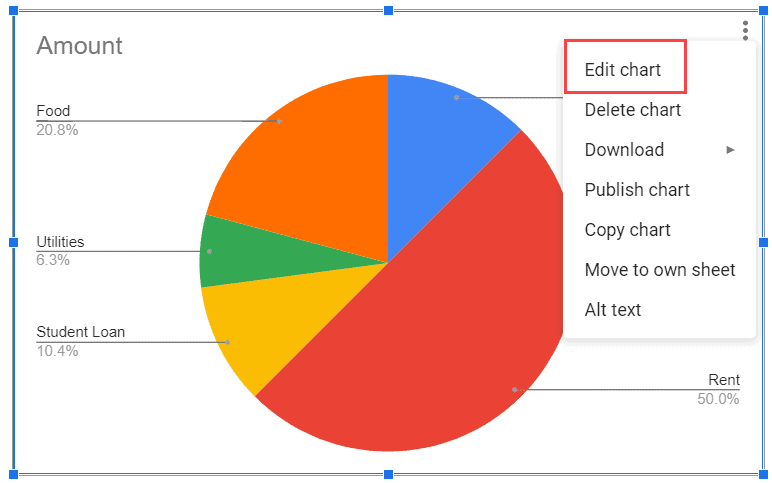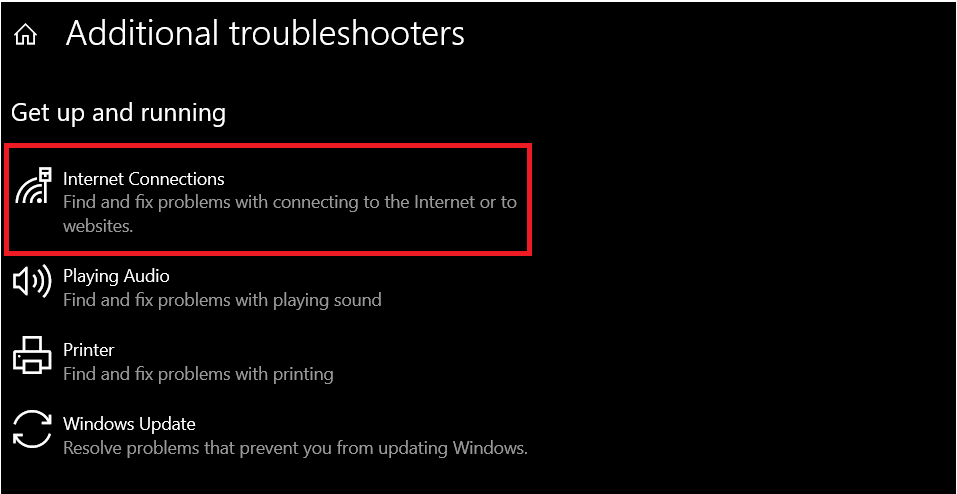Google Sheets is an excellent free spreadsheet app. Whether you have zero spreadsheet experience or you’re switching from another program, you’ll want to learn basics — like how to do subtraction in Google Sheets.
I’ll show you how to subtract in Google Sheets using functions like MINUS and SUM in this guide.
This Article Covers:
How To Subtract in Google Sheets
You can do subtraction in Google’s spreadsheet program in several ways. The following methods will allow you to easily carry out the most complex calculations.
Note: These terms apply to numbers and cells alike. |
1. Easiest Method: Subtract Using the Minus Sign
The easiest subtraction method in Google Sheets is using the minus sign (-). Follow the steps below:
- Select the empty cell you want to perform the calculation in.
- Type an equal sign (=).

- Input the numbers or values you want to subtract, using the minus symbol (-) between both.

- Press “Enter” to complete the subtraction. The cell will display the solution!

Subtracting Multiple Variables in One Cell
To continue subtracting more variables from the original number, add as many minus signs and numbers as you want.

Once you press “Enter,” the calculation will run and display the solution.
2. How To Subtract Cells from Each Other
You can also subtract cells from each other:
- Select the empty cell you want to perform the calculation in.
- Start by typing an equal sign (=).

- Select the minuend cell (the cell you want to subtract from), and type the minus sign (-).
- Next, click on the subtrahend cell (the cell you want to subtract).
- You may also manually type the cell references if you prefer.

- Press “Enter” to complete the subtraction and display the solution within the cell.

3. How to Subtract in Google Sheets Using =MINUS
The basic operation (above) is the simplest way to subtract in Google Sheets. However, here’s how to subtract on Google Sheets using the =MINUS formula:
- Select the empty cell to perform the calculation.
- Type an equal sign (=) followed by MINUS.

- Type an opening parenthesis followed by your minuend. Add a comma and type your subtrahend. Finish the formula with a closing parenthesis.
- Press “Enter” to complete the equation.

Note: If you want to subtract more numbers from the minuend, add another comma and number. Repeat for every number you wish to subtract. Don’t forget the closing parenthesis!

How to Subtract Two Cells in Google Sheets Using the =MINUS Formula
I’ve covered how to subtract numbers in Google Sheets, but did you know you can use the MINUS formula to subtract cells from each other, too? Follow the steps below to learn how:
- Select the empty cell to perform the equation.
- Type an equal sign (=) followed by MINUS.

- Type an opening parenthesis, then click on or type your minuend cell. Add a comma, input your subtrahend cell, and finish the formula with a closing parenthesis.

- Press “Enter” to complete the formula and display the solution.

4. Using the =SUM Formula for Google Sheet Subtraction
How do you subtract in Google Sheets using a SUM function? It may seem counterintuitive, but a simple trick involves making the subtrahend negative.
- Select the empty cell you want to perform the calculation in.
- Type an equal sign (=) followed by SUM. Thanks to Sheets’ uncomplicated syntax, you can type it in uppercase or lowercase.

- Type an open parenthesis and select your minuend cell (A1). Add a comma, type a negative or minus symbol (-), then select your subtrahend cell (A2). Finish the formula with a closing parenthesis.

- Press “Enter” to complete the calculation and display the solution.

You can use the =SUM formula to subtract, as long as you make any subtrahends negative by adding the negative (-) symbol in front of it in your formula.
For example, in the formula =SUM(12,-5), I’ve added the (-) symbol before 5, making the subtrahend a negative value. This formula will also return a solution of 7.
5. How to Subtract Multiple Cells in Google Sheets
In Google Sheets, to subtract multiple cells, you must add more cells to your equation to perform sequential subtraction.
Create your formula just like you would for subtracting two normal cells. Start adding more subtrahend cells using the minus sign and the cell references.
In the below example, cells A2, A3, and A4 will be subtracted from the minuend A1.

However, the method above is not the most convenient way to subtract multiple cells. Personally speaking, I find that manually adding each cell reference can be a chore.
Using the =SUM Formula to Subtract Multiple Cells in Google Sheets
For a more convenient method, you could use a combination of the minus operator (-) and the =SUM formula:
- Click your preferred cell, type an equal sign, and select the minuend cell. Add a minus sign (-) after the cell.

- Type SUM followed by an open parenthesis. Select your first subtrahend cell, then press shift to ensure the other cells are highlighted as a range. Clicking on your final subtrahend cell, then your equation should look like the example below:

- Add a closing parenthesis and press Enter to display the solution.
Note: You can manually input the cell ranges by typing the first subtrahend (A2) followed by a colon, then the last subtrahend (A4). For example, your formula would look like:
=A1-SUM(A2:A4)
6. How to Subtract Cell Ranges in Google Sheets
What do you do if you want to subtract ranges of cells from each other? It’s easy: Use a combination of the SUM formula and the minus operator (-) to perform your calculation. Here’s how to subtract cell ranges in Google Sheets:
- Select your empty cell and type an equal sign (=).

- Sum up the numbers in the first column. To do so, type SUM followed by an open parenthesis, then select the cell range containing the numbers.

- Finish your first equation with a closing parenthesis, then add your minus operator.

- Add the numbers in the second column together (just like you did in the first column). Type SUM, an open parenthesis, then select the cell range containing the numbers. Finish your formula with a closing parenthesis.

- Press enter to complete the equation and display the solution.

Related Reading: How to Use MMULT Function in Google Sheets: An Easy Guide
7. How to Subtract in Google Sheets Using Absolute References
Say that I have a single number or variable that I want to subtract from a range of other valuables. A customer purchased five of each product — and I want to determine how much stock I have left of each inventory item.
While I could manually subtract with a custom formula for each product, I can also calculate using absolute references.

In the image above, let’s say you want to subtract 5 from all the minuends in column A. You can then turn the subtrahend 5 (or cell B2) into an absolute reference by adding a dollar sign ($). This locks it as a reference within the formula.
Note: Locking a reference allows you to use the same subtrahend (B2) as a variable in all the formulas you intend to create. This prevents calculation mishaps and allows for greater convenience.
The dollar sign can be used in three ways:
- Column – Locks only the column by adding the dollar sign before the column reference (the column letter). For example, =$B2 means that the reference is column-locked, but the row is still relative.
- Row – Locks only the row by adding the dollar sign before the row reference (the row number). For example, =B$2 means the reference is row-locked, but the column is still relative.
- Column and Row – You can completely lock the reference by adding the dollar sign to both row and column. For example, =$B$2 means that the subtrahend reference (in the image above) is locked.
How to Use Absolute References to Do Subtraction in Google Sheets:
Sometimes, you do not want a cell reference to change when copying or filling cells. Therefore, you can use the absolute reference for a specific row, column, or cell to copy and paste the exact formula into another call without reentering or adjusting the formula in the cell.
- Select an empty cell in column C and type an equals sign (=).
- Select or enter the first cell to subtract from (in this case, A2). Add a minus sign (-) to denote subtraction.

- Select or enter your subtrahend cell B2, then create an absolute reference by adding a dollar sign for column B and row 2 ($B$2) — press enter.

- Google Sheets may prompt you to perform an auto-fill for the remaining minuends. Select “yes” if desired.
- If you don’t receive a prompt, click on the dot in the bottom-right corner of the cell.
- While holding your left-click button, drag your cursor down to the last minuend row, then release. The cells should auto-populate with your results.

Frequently Asked Questions
What Are the Basic Formulas in Google Sheets?
The most standard formula operators can be used independently or in combination to perform the necessary equations and calculations.
- Equals: = (equal sign)
- Addition: + (plus sign)
- Subtraction: – (minus sign)
- Multiplication: * (asterisk)
- Division: / (forward slash)
- Exponents: ^ (caret)
What Is the Subtraction Function in Google Sheets?
=MINUS is the standard Google Sheets subtract function. You can also use the – symbol as an operator instead. For example, =MINUS(A2,C2) is the same as =A2-C2.
How Do You Subtract 2 Numbers From a Number in Google Sheets?
Place the first number at the beginning of the equation and use the – operator twice. For example, =100-30-5. Alternatively, you can add the two other figures and subtract the result from the first number: =100-(30+5).
Conclusion
There are many subtracting methods that exist in Google Sheets, and luckily, they’re fairly straightforward to learn. I hope following this guide has helped you learn how to subtract in Google Sheets like an expert! If you want to improve your spreadsheet skills, Udemy offers professional classes that will elevate your understanding.
Need to figure out dates and days? Check out the easiest ways to count days in Google Sheets, including every possible method and formula.
Related:







